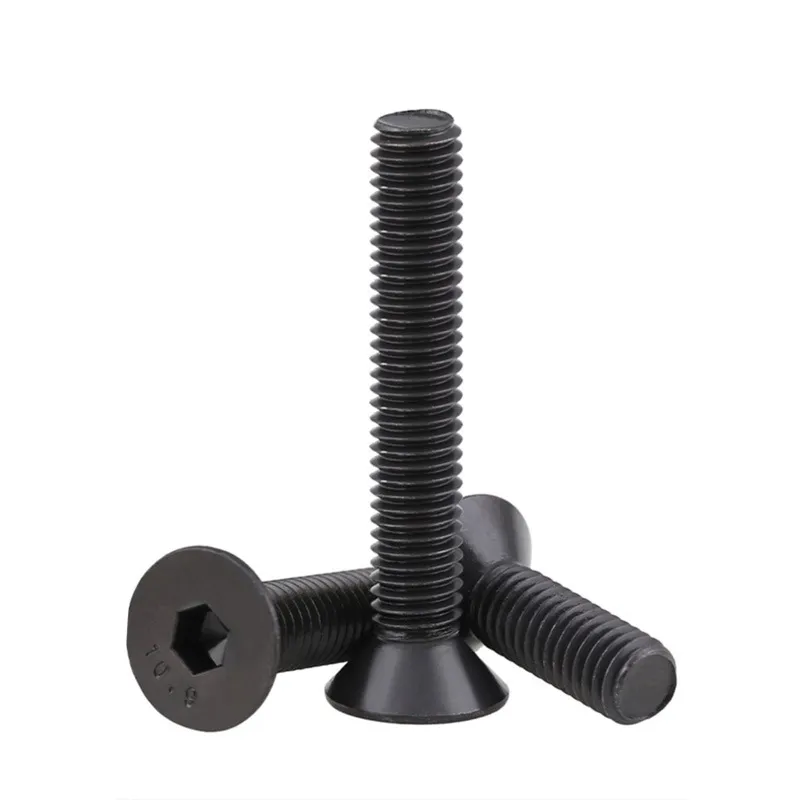

Thick Metal Washers Provide Enhanced Durability and Support for Heavy-Duty Applications in Various Industries
авг. . 14, 2024 19:01 Back to list
Thick Metal Washers Provide Enhanced Durability and Support for Heavy-Duty Applications in Various Industries
Understanding Thick Metal Washers Their Importance and Applications
Thick metal washers are commonly overlooked yet pivotal components in various mechanical and structural applications. Often made from materials such as steel, stainless steel, or aluminum, these heavy-duty washers serve important functions in ensuring the stability and longevity of assemblies in diverse fields from construction to automotive.
At the core of their function, thick metal washers are used to distribute load in a fastening system. When a bolt or screw is tightened, the force exerted concentrates at the point of contact. This can lead to deformation of the materials being joined, especially if those materials are softer than the fastener. By placing a thick washer beneath the bolt head or nut, the load is spread over a larger surface area, reducing the risk of damage to the components being secured. This is particularly critical in applications involving thin or brittle materials that might otherwise crack or break under pressure.
Another significant function of thick metal washers is to provide a cushion against vibration. In many mechanical systems, moving parts can create significant vibrations, leading to loosening of fasteners over time. The added thickness of these washers can help absorb some of the vibrational energy, thereby maintaining tension in the bolt and preventing failure of the connection. This is particularly advantageous in automotive applications, where constant motion and vibration are inherent to the operation of engines and suspension systems.
thick metal washers

Thick metal washers also play a vital role in protecting surfaces from wear. The edges of bolts and nuts can dig into the surface of the material they are fastened to, leading to potential corrosion, wear, and eventual failure of both the fastener and the workpiece. The use of a thick washer can serve as a barrier, preventing direct contact between the fastener and the surface material. In applications where aesthetics matter, such as in architectural fittings, thick washers can also provide a finished look, enhancing the overall design.
When selecting thick metal washers, one must consider several factors, including the material, thickness, diameter, and the load the washer needs to handle. High-quality materials like stainless steel are often preferred for their corrosion resistance properties, especially in outdoor or moist environments. The thickness of the washer will depend on the specific application's load requirements; a thicker washer can provide increased load distribution but may not be necessary for lighter applications.
Moreover, the diameter of the washer must match the fastener being used. A washer that is too small will not distribute the load effectively, and one that is too large could interfere with adjacent components. Therefore, adhering to industry standards for dimensions is crucial in ensuring optimal performance.
In conclusion, thick metal washers serve multiple essential purposes in various applications, from distributing load and minimizing wear to absorbing vibration. While they may not receive the attention they deserve, their role in enhancing the durability and reliability of mechanical systems cannot be overstated. Those involved in design, engineering, or maintenance should recognize the importance of selecting the right thick metal washer to ensure the longevity and performance of their projects. By investing time in choosing the correct specifications, one can avert potential failures and enhance overall efficiency.
Latest news
-
Hot Dip Galvanized Bolts-About LongZe|High Strength, Corrosion Resistance
NewsJul.30,2025
-
High-Strength Hot Dip Galvanized Bolts - Hebei Longze | Corrosion Resistance, Customization
NewsJul.30,2025
-
Hot Dip Galvanized Bolts-Hebei Longze|Corrosion Resistance&High Strength
NewsJul.30,2025
-
High-Strength Hot-Dip Galvanized Bolts-Hebei Longze|Corrosion Resistance&High Strength
NewsJul.30,2025
-
Hot Dip Galvanized Bolts-Hebei Longze|Corrosion Resistance&High Strength
NewsJul.30,2025
-
Hot Dip Galvanized Bolts - Hebei Longze | Corrosion Resistance, High Strength
NewsJul.30,2025

